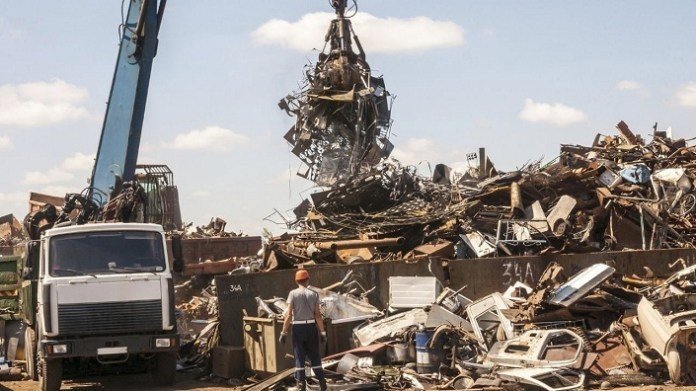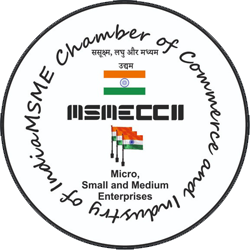The Material Recycling Association of India (MRAI) has urged Union Finance Minister Nirmala Sitharaman to rectify the inverted duty structure wherein all finished products of aluminium, copper and copper alloys in the form of tubes, sheets and rods can be imported duty free from ASEAN countries, while 5 per cent import duty is levied on the import of essential raw materials such as aluminium and copper scraps and copper cathodes to manufacture the same products in India.
This will in turn support the Government’s "Make in India" policy and in becoming "Atmanirbhar".
In India, an import duty ranging from 2.5% to 5% is levied on metal scrap. While Indian processors import metal scrap at the duty of up to 5%, processors in FTA countries pay no duty for the same & supply semi/ finished products on zero duty to India which also causes the Inverted Duty Structure.
- Removal of Custom Duty on import of Metal Scrap; If the basic customs duty on imported metal scrap is removed, then this will create a level playing field for Indian Recycling/Secondary producers thereby resulting in increased exports of Indian products and helping in creating employment in India. This will in turn support the Government’s "Make in India" policy and in becoming "Atmanirbhar".
- We request the Government of India to bring the duties on raw materials i.e. metal scrap to ZERO which is required by the Indian Recycling/Secondary industry
- MRAI feels that there is a need to review the FTA with ASEAN Countries and take coercive action so that same will safeguard the interest of MSME and help in creating a level playing field for the Indian industry in the International Market. We would like to inform you that, the entire ASEAN block has nil duty on imported raw materials (scraps), whereas, in India, importers pay duty. So, if it is not possible to amend FTA, kindly provide duty-free import to Indian manufacturers so that there is a level playing field for both Impose GST @5% for all types of metal scrap; Apart from the scrap generation from organized industry players such as Railways, Automobile, Engineering units, etc., a significant amount of metal scrap is generated from households as well. Collection for this sector is highly unorganized and includes several dealers in the scrap collection process till the same reaches the manufacturers of the secondary metal. However, given the unorganized nature of the sector and 18% GST on Metal scrap, medium dealers engage in availing of irregular input tax credits based on fake input credit invoices without any underlying supply of goods or services.
To the extent the input tax credit availed is fake, there is an underpayment of tax to the Government. The reduction of the GST rate to 5% will ensure an increase in GST revenue to the government by adding more dealers into the GST net who at present may be avoiding paying GST due to the high rate on metal scrap.
- GST on finished products manufactured from scrap recycling can be continued to be taxed at the present relevant rates which is the GST revenue for the Government.
- Below illustration shows there will be no loss to the Government Revenue if GST on Metal Scrap is reduced to 5%
- With reference to the above table, Government will not lose a single rupee even if the GST rate is changed to 5% on metal scrap. Also, this will attract more stakeholders to come under the ambit of GST
- Utilization of accumulated GST Credit for fresh imports; Majority of MRAI members requested the government especially in the pandemic time to utilize the accumulated GST on Fresh Imports by MRAI so that the blocked working capital can be again brought back in Rotation
Request to exempt goods & service tax levied on commission earned in foreign exchange on exports of services; Post the implementation of the GST law, 18% GST is now payable on commission earned in foreign exchange by Indian based companies basis the export of services provided by them to their foreign-based Principal. There is an urgent need to get the GST removed on the export of such intermediary services that earn valuable foreign exchange for the country as the Commission paid to Indian Agents is included in the price paid by the importer. Hence, this value is already charged IGST. Hence, it is double taxation of the Commission amount.
Continuation of IGST may lead to the closure of business or shift of business to other countries leading to loss of revenue – GST & Income Tax and foreign exchange inflow. Indulgence in tax evasion activities by unscrupulous businesses cannot be ruled out.
As India is a service-based country and the Indians provide services to many overseas companies, if we remove GST on Commission on Intermediary service, we can definitely strengthen our export services as well.
Suggestions pertaining to Direct Tax
- Reduction of the income tax rate for Corporate as well as Individual
History shows that higher tax rates do not result in higher government revenue, but lower tax rates result in better tax compliance and higher government revenue. In this regard, we suggest that the present Income tax rates for both corporate as well as individuals should be reduced from 25% to 15%. - Reviewing the rate of tax on DDT recipients
The rate of tax on DDT recipients should be a maximum of 15% for recipients above the tax bracket of 15% and it should be nil for recipients below the tax bracket of 15% as this will encourage investment and also increase wealth creation for investors.
Source: THE POLICY TIMES










Leave a reply